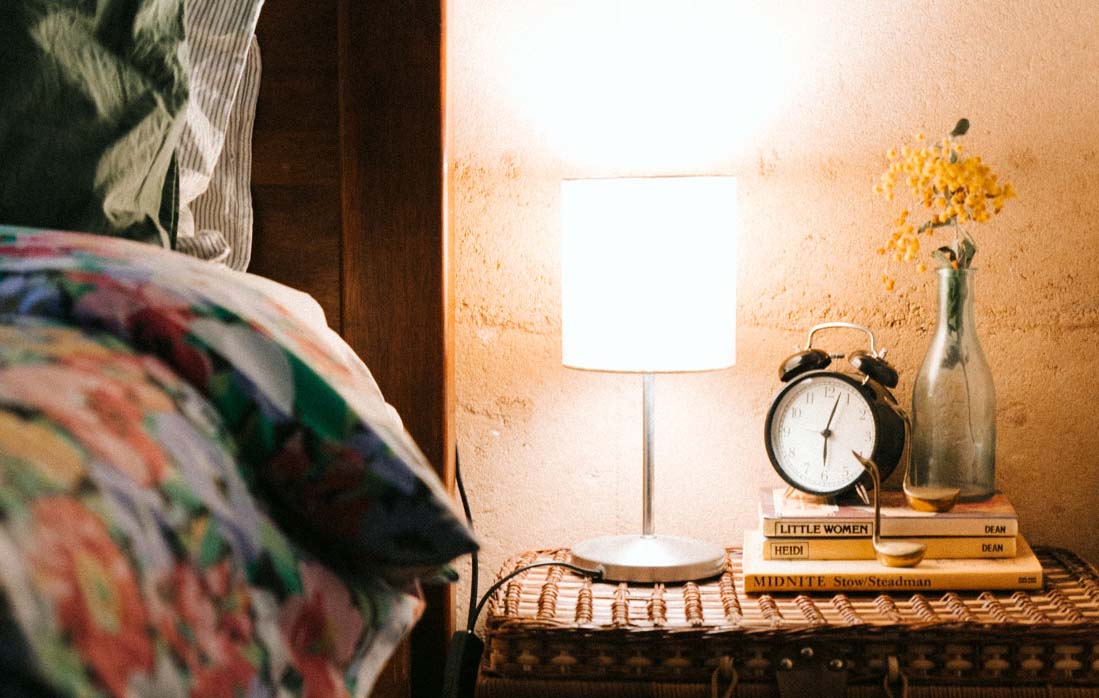
Sleeping with a little illuminated help is not uncommon, but a new study, published in the March issue of the Proceedings of the National Academy of Sciences (PNAS), shows it might not be the best thing for you. It found that artificial light exposure may impair cardiometabolic function and, in turn, may increase the risk of diabetes.
What The Study Looked At
Researchers followed 20 healthy adults from the ages of 18 to 40. The participants wore a Philips Respironics Actiwatch and kept a sleep diary of their habits.
Additionally, participants were excluded from the study if they had any sleep, neurological, or psychiatric disorders, as well as diabetes, obesity, gastrointestinal disease, blindness, shift workers, those with serious medical conditions, smokers, women who were pregnant or breastfeeding, anyone undergoing light therapy, using illegal substances, or who was allergic to heparin (a blood thinner).
After eligibility was confirmed, participants stayed at a laboratory for three days and two nights, with eight-hour sleep opportunities starting at usual bedtime. They were divided into two groups:
- One group slept in the “room light condition” group, meaning they slept with a dim light the first night and then a brighter overhead light the second night.
- The second group was the “dim light condition” group: They slept under a dim light for both nights.
Throughout the study, researchers analyzed the participants’ glucose and insulin levels. They also conducted sleep studies via polysomnography (PSG) both nights. Lastly, they measured the participants’ daytime heart rate and blood pressure, subjective sleepiness, plasma melatonin, and VAS, or visual analog scale, which measures acute and chronic pain.
What The Study Found
Researchers wrote that the main findings were that one night of light exposure increased measures of insulin resistance in the morning. This light exposure during one night of sleep may also raise heart rate while asleep and impair one’s glucose metabolism in the morning.
The change in insulin resistance was significantly different between those who were exposed to the “room light” (15 percent increase) versus “dim light” (4 percent decrease). A glucose tolerance test showed that glucose values were not different amongst dim or room light; however, insulin levels were significantly higher from day 1 to day 2 for room lighting.
Overall, a big takeaway is that exposure to ambient light at nighttime may increase your risk of health outcomes like cardiometabolic disease. According to the University of Edinburgh, cardiometabolic diseases include “heart attack, stroke, diabetes, insulin resistance, and non-alcoholic fatty liver disease.”
What This Means For You
It’s possible that artificial light at nighttime may negatively impact your health. Luckily, there are a few steps you can take to reduce your light exposure at bedtime and throughout the night.
- Unplug that night light, turn off that light down the hall, and switch off the television – it’ll be better for you in the long run!
- If you can, keep digital devices and any other device producing ambient light out of the bedroom.
- Try some blue-light-blocking glasses on for size before bed to prevent the blockage of melatonin production.
- Invest in some blackout curtains to keep your bedroom dark and optimal for sleeping.
- If you’re used to sleeping with a light on for easing your mind, try a sound machine. This could offer you a similar effect by blocking out the silence and any worries you may have around bedtime.
Do you have a tip or trick to cut out nighttime light? Shoot us a note at carley.prendergast@sleepopolis.com.
